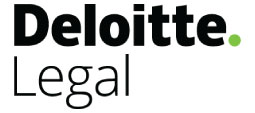By an increasing development of digital technologies, and especially following the recent COVID-19 global pandemic, many employers in Bosnia and Herzegovina have started to implement remote working in their work regime. Depending on the needs of their businesses, some employers have implemented a hybrid regime (i.e., a combination of work from the employer’s premises and remote work), while some have completely switched to remote work regime. Generally, remote work in B&H is attractive for employers, due to cost cutting (e.g. lower lease fees, lower utility costs), but also due to higher employee satisfaction as it supports work-life balance.
Bosnia and Herzegovina has ratified the Home Work Convention (i.e., Convention no. 177) of the International Labour Organization, and as a result, both entity Labour Laws (in the Federation of B&H and in Republika Srpska) regulate the institute of “work outside of the employer's business premises”. However, to legally implement remote work in B&H, requires navigating through a complex legal framework (e.g. differentiation between remote work, field work, business trip, secondment, etc., preparation of a work schedule that complies with law provisions, etc.), and following some important steps (e.g. alignment of employer’s general acts (if any) and individual acts, compliance with occupational safety and health regulations, etc.). In further text, I will address some of the remote work characteristics that should be considered and reminded of.
Additional mandatory elements of a remote work employment contract
Both laws (Art. 26 (2) of the Labour Law of the FB&H and Art. 44 (3) of the Labour Law of Republika Srpska) regulate additional mandatory elements that such contract should have, such as: working conditions and the manner of supervising an employee; using the employee’s equipment and respective remuneration*; remuneration* of other work expenses and the manner of their determination, etc.
*Remuneration of expenses is mandatory for remote working employees, but since the Labour Law does not regulate minimum or maximum amount, it is up to contracting parties to agree on the amount. With regards to tax treatment of remunerations linked to remote work, they are not tax exempt, meaning they share the tax treatment of the employee’s salary. On the other hand, the payment of travel and meal allowance (up to maximum nontaxable amount – FB&H) should be re-considered if the employee is working remotely.
Hybrid work regime
The Federal Ministry of Labour and Social Policy has published an opinion that employment contract can, at the same time, regulate that the employee’s place of work is at the employer’s premises and outside of the employer’s premises, provided that such contract also contains additional mandatory provisions for remote work contracts. In other words, “hybrid” work regime can be covered in an employment contract.
Of course, employers are obliged to keep their records on employee attendance, pursuant to the applicable rulebook, so that they reflect the actual attendance at work and remote work.
Occupational health and safety
Remote work can be agreed only for works that are not considered hazardous or detrimental to the health of the employee or other persons, and do not threaten working environment.
It is hereby important to remind employers on occupational health and safety requirements, since all employers are obliged to render an internal act on occupational health and safety, based on previously conducted assessment of risks, as regulated in the Law on Occupational Health and Safety.
Also, the employee’s home or other place of remote work from where the employee works under indirect employer’s supervision, is considered a place of work in sense of provisions of the Law on Occupational Health and Safety. This means that the employer is required to provide the same occupational health and safety measures as if the employee has been working from the employer’s premises.
Specific provisions in Republika Srpska
The Labour Law of Republika Srpska, unlike the Labour Law of the Federation of B&H, with respect to remote work, regulates also the following:
- The employer is obliged to register remote work contracts with the competent authority (local self-government unit).
- The employee conducts their remote work in the name and on behalf of the employer, alone or together with their close family members. Since this provision lacks clarity, it is important to regulate confidentiality in an adequate manner; otherwise, close family members could have access to confidential information disclosed to the employee working remotely.
Digital nomads in Bosnia and Herzegovina
The Law on Foreigners of B&H has been recently amended and introduced the following novelty for so called digital nomads:
- Foreigners who work remotely for their foreign employers, or for their own companies registered abroad, provided that they do not provide services to local employers and that they have a regulated stay based on visa or non-visa regime, can work remotely in B&H without work permit up to 90 days within a 180-day period, by obtaining a work certificate at the Service for Foreigners’ Affairs.
In other words, digital nomads can work remotely in B&H up to 90 days within a 180-day period, under above stated conditions.
Key takeaways from this Article:
- Implementing remote work (fully or partially) in an organization, requires following some mandatory steps, such as concluding an employment contract with additional mandatory elements, registration of such contract (Republika Srpska), and compliance with occupational health and safety requirements.
- Employees who work remotely are entitled to additional remunerations linked to remote work.
- Foreigners can also remotely work in B&H without obtaining a work permit, up to 90 days in a 180-day period, under conditions regulated in the Law on Foreigners.
Many employers implement remote work in practice, but have not regulated the respective matter in their internal acts. It is strongly recommendable to act pursuant to law provisions, since there are numerous risks linked to remote work, that can be mitigated by its proper regulation.
***
Disclaimer
The purpose of the materials and information provided herein is to provide general information on a topic or topics. These materials do not represent an exhaustive elaboration of these topics. Accordingly, the information in the material does not constitute legal advice.
This information is not intended as the sole basis for decisions that may affect you or your business. Before making any decision or taking any action, be sure to seek the advice from a qualified professional.
By Aida Hamur, Attorney at Law, Legal Partners


